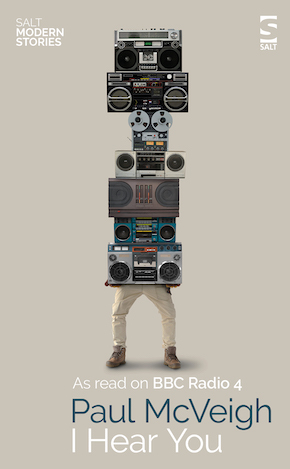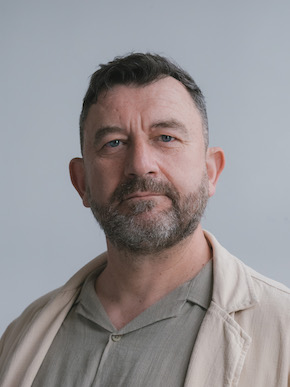The short story vs. the novel
by Paul McVeigh
SOME WRITERS BELIEVE short stories are harder to write than novels. They may put this down to every word having to count in a short story, while in the novel the narrative is allowed to meander. Although this is true to an extent, it would be foolish to think the novel is the easy option, it has major challenges too. For example, how do you keep a reader engaged right to the end of your long journey?
The length certainly matters. Producing a 3,000-word short story, or 2,000 when it comes to a BBC Radio 4 commission, is not the same investment as producing a 90,000 to 120,000-word novel. The short story, novella and novel are all different forms, so length is just one of the issues – the short story is not a very short novel, nor is a novel a very long short story. Each form has its own attributes and the best way to see how short stories work is to read as many as you can. Reading interviews with great writers talking about the subject can be really useful too. The Paris Review and The New Yorker have wonderful archives containing interviews with and short stories from the best writers in the form.
You could perhaps draw the following analogy to compare the two: a short story would be like producing a photograph, while a novel would be more like making a film. A photographer will be thinking about every tiny detail in the frame and how it conveys meaning. It can be a character portrait or a moment captured in time. The novel, like a film, can take us on a sweeping journey, capture many lives, cover lifetimes/generations in detail, discuss a society or the history of a culture. For example, when I wanted to capture what it was like for a whole generation of children to grow up in Northern Ireland knowing nothing else but The Troubles, I knew that this had to be done in a novel. To describe the day-to-day life and the cumulative effect of living in fear, on one boy, his family and the community at large, the reader needed to spend time with that boy, in that community.
I had an image of a son tickling his mother’s legs after she had returned from a long day standing at work. Over the years, I added to this image – snatches of dialogue, thoughts and feelings…”
My first short story for the radio
Time works differently for me in relation to writing a short story and a novel. I don’t sit down and draw up a plan for a short story. I tend to have an idea and hold it in my head, sometimes for months or sometimes years. For example, when I was a student, 20-odd years ago, I had an image of a son tickling his mother’s legs after she had returned from a long day standing at work. An image is not a story, however. Over the years, I added to this image – snatches of dialogue, thoughts and feelings, an event I experienced, and finally an image from a story someone else told me, which provided the key to my own story. When I sat down to write it, it took an afternoon. So, depending on your point of view, the short story took an afternoon or 20 years to write. This story was my first commission by BBC Radio and was aired on BBC Radio Ulster and Radio 4. The story is called ‘Tickles’ and is in my debut collection of stories, all written for Radio 4, called I Hear You.
Short stories are a place to play
I was writing plays and comedy when I was invited to write a short story by an editor who’d seen my work in a theatre. Having only written dialogue for the previous ten years, I was really intimidated at the thought of writing prose at all. Despite this, I could see a short story in my mind. It was imaginable. I think that’s why a short story can be a good place to start when setting out to write prose. You can experiment with voices, characters, points of view, and so on. If the story isn’t working, you can abandon it and move to another idea. Starting by writing short stories is not to suggest that a short story is merely a stepping stone to writing novels. The short story is a glorious form in its own right, and mastering it can take many years.
Most writers will tell you that learning how to write necessitates a lot of reading or, in the case of writing for radio, listening. The great thing about short stories is that you can read/listen to one a day and glean ideas on form, style and plotting. You will most likely be juggling your writing time with many other things, such as your job and family, but you can always fit in a 30-minute read/listen.
Check out the BBC Radio 4 short story archive, it’s an incredible resource.
A few short story recommendations
I’m a huge fan of Hemingway. You should visit some Chekhov, Flannery O’Connor and Raymond Carver to name a few essentials. As for contemporary writing, I strongly recommend Irish authors such as Kevin Barry, Colin Barrett and Claire Keegan, America’s George Saunders, Karen Russell and Laura van den Berg, Canadians Alice Munro and Margaret Atwood, Australia’s Cate Kennedy, and in the UK, Helen Simpson, David Constantine, Jackie Kay and Jon McGregor. I could go on for days…
—

Paul McVeigh was born in Belfast, where he began his career as a playwright before moving to London where he wrote comedy shows that were performed at the Edinburgh Festival and in London’s West End. His short stories have been published in anthologies, newspapers and literary journals, and read on BBC Radio 3, 4 and 5. His debut novel, The Good Son, won The Polari First Book Prize and The McCrae Literary Award, and his writing has been translated into eight languages. I Hear You is published by Salt.
Read more
paulmcveighwriter.com
@paul_mc_veigh
@saltpublishing.com

